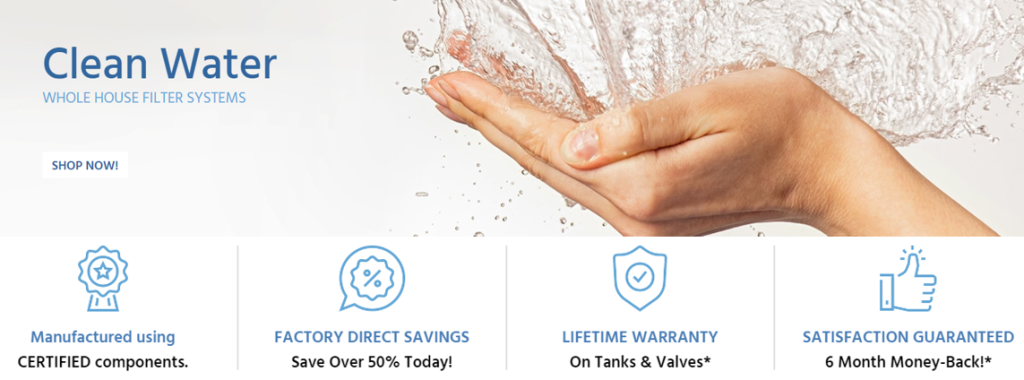If your water softener runs out of salt, your water will no longer be soft.
If your water softener runs out of salt, your water will become hard again. Hard water can cause a number of problems, including making it difficult to get your clothes clean when you do laundry and leaving spots on dishes and glassware. If you have hard water, you may also notice that your skin feels dry and your hair looks dull.
What Are The Consequences Of A Water Softener Running Out Of Salt?
If a water softener runs out of salt, it will no longer be able to remove minerals from the water.

If your water softener runs out of salt, the consequences could be hard water, reduced efficiency, and even damage to your unit.
Install a Home Water Filter & Get "Unlimited Safe Drinking Water" For Decades
Get Upto 55% Discount With a Lifetime Warranty & 6-Months Money Back Guarantee Free Shipping
SpringWell Water Filtration Systems: 100% American-Made & NSF Certified Water Filters and Water Softeners
Hard water is water that contains high levels of dissolved minerals, like calcium and magnesium. When water hardness is not controlled, it can cause all sorts of problems in your home, including clogged pipes, reduced soap efficiency, and scale build-up on fixtures and appliances.
If you have a water softener, it is important to keep it filled with salt so that it can continue to do its job. If you don’t, you may start to notice the consequences of hard water, like reduced soap efficiency and scale build-up.
If you think your water softener may be running out of salt, it’s important to check the unit and add more if necessary. Doing so will help avoid the consequences of hard water and keep your home running smoothly.
What Happens If I Don’t Replenish My Water Softener With Salt?
If you don’t replenish your water softener with salt, it won’t be able to soften your water.
If you have a water softener, it’s important to keep it full of salt so that it can continue to do its job. Otherwise, your water softener won’t be able to remove minerals from your water, and your water will become hard again.
There are a few things that can happen if you don’t replenish your water softener with salt. For one, your water will become hard again, and you’ll start to notice a difference in the way your water feels and tastes. Additionally, your water softener will start to wear out more quickly, and it may eventually break down completely.
Of course, the best way to avoid these problems is to simply keep your water softener filled with salt. That way, you can enjoy soft water for years to come.
FAQ
How Often Should I Add Salt To My Water Softener?
What Are The Signs That My Water Softener Needs More Salt?
1. Your water is harder than usual.
2. You’re using more salt than usual.
3. Your water softener isn’t working as well as it used to.
4. You have high levels of hardness in your water.
If you notice any of these signs, it’s a good idea to add more salt to your water softener. This will help keep your water soft and your softener working properly.
If you still have any questions about what happens if your water softener runs out of salt, feel free to comment below.


